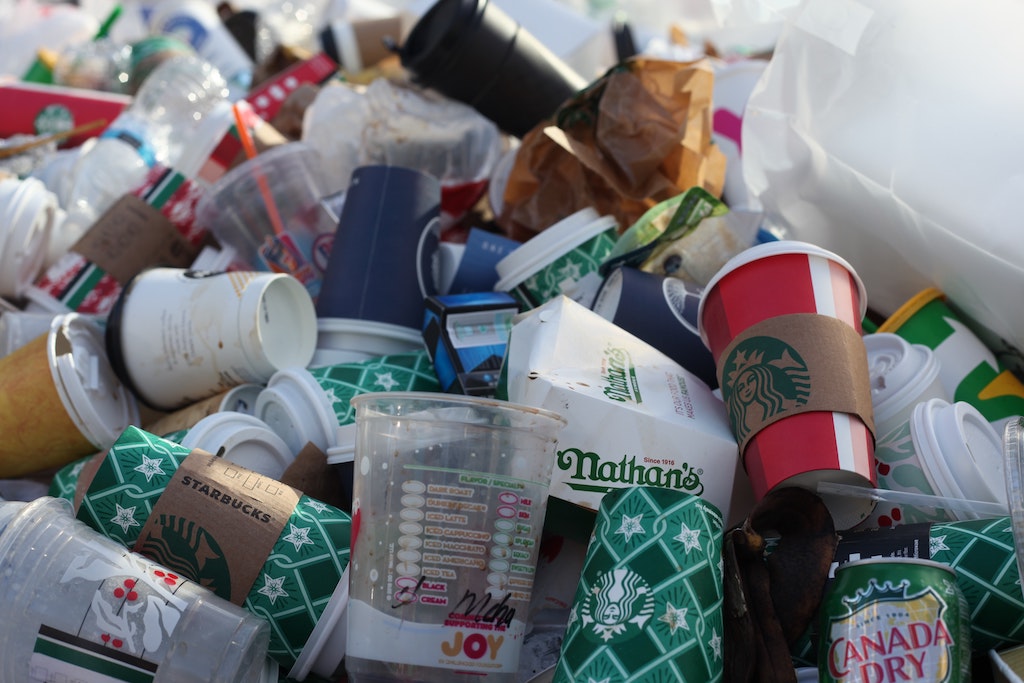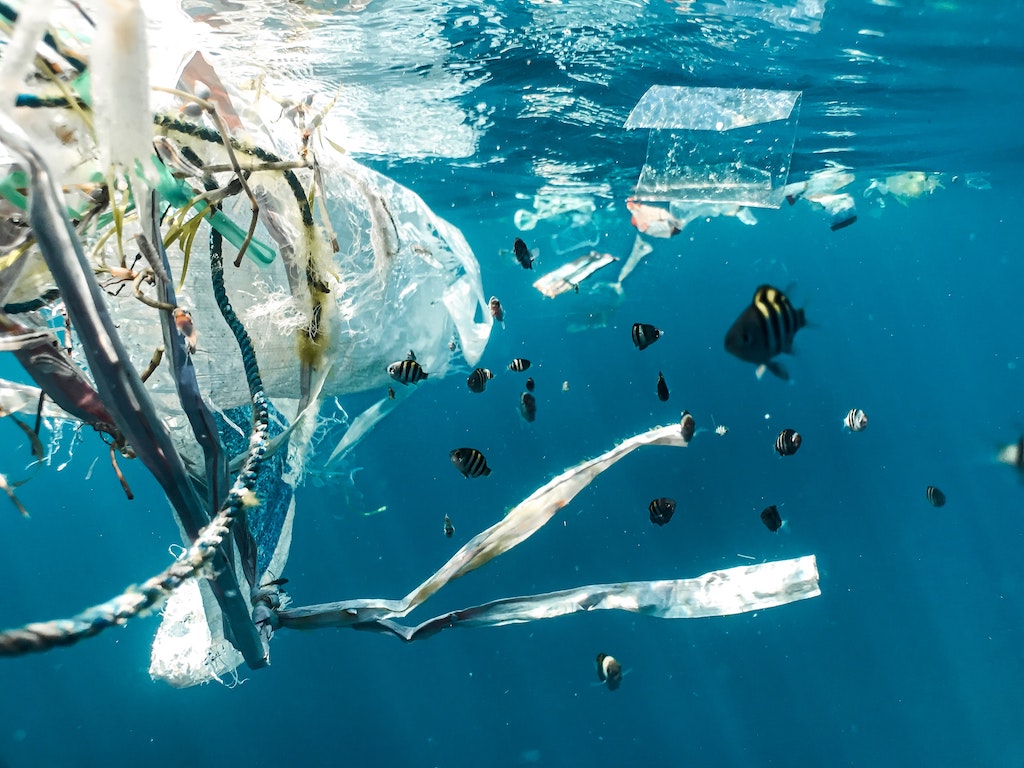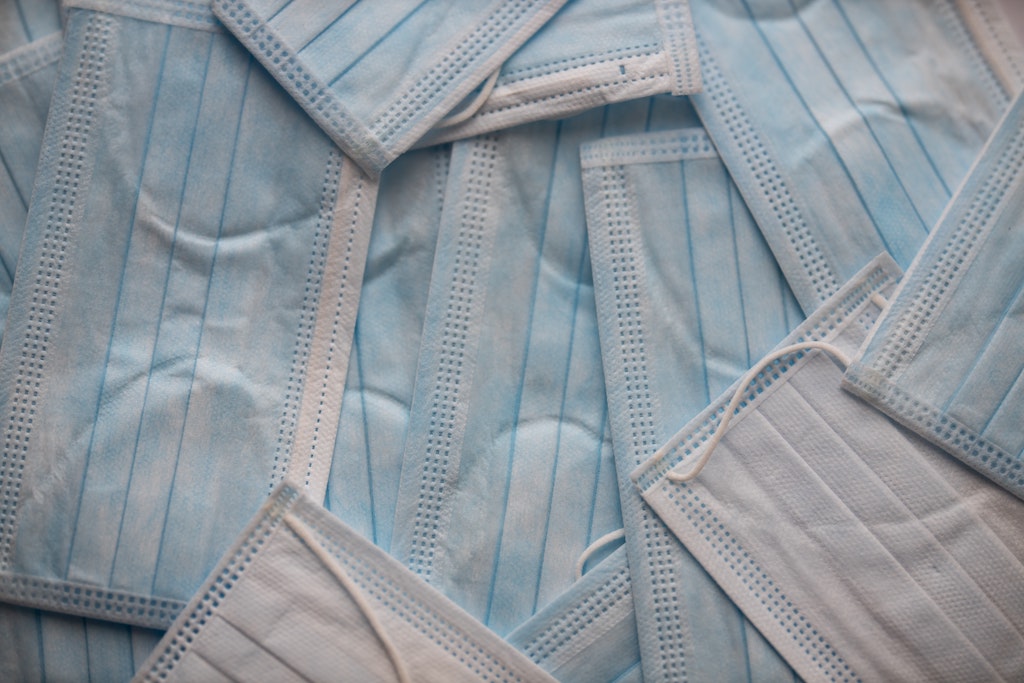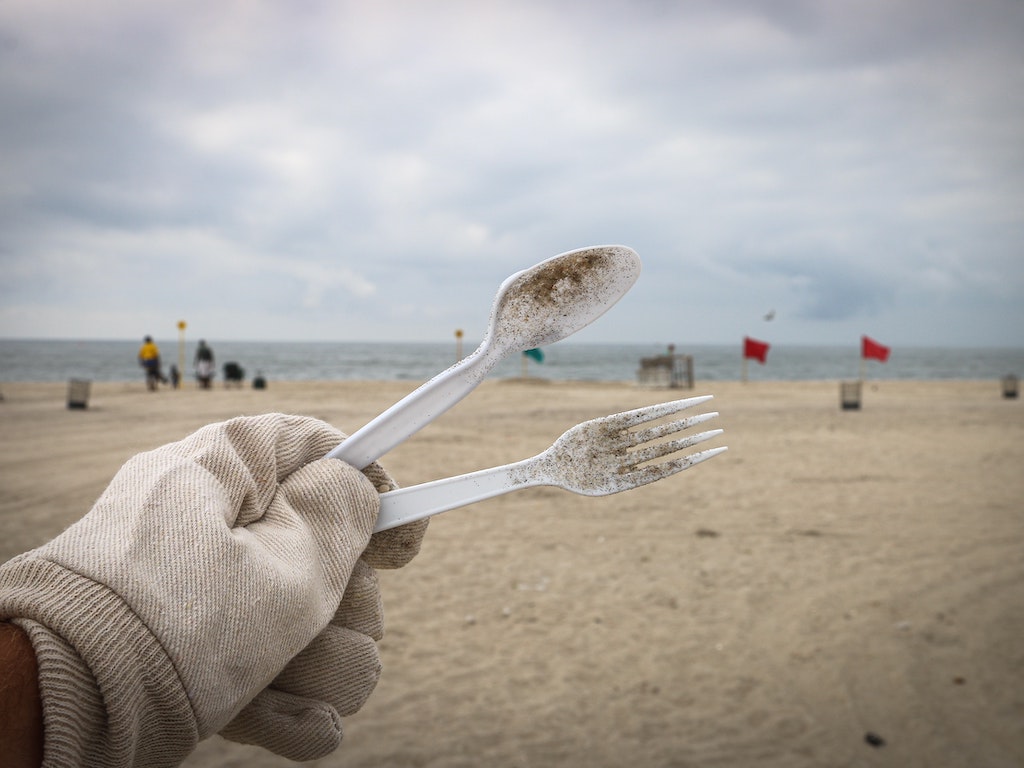5 Mins Read
The long-awaited 2019 E.U. law to regulate single-use plastics has finally come into force. From July 3, all European member states will have to make sure new disposable plastics aren’t entering the market. But it’s not as simple as that—not all plastics are outlawed under the new guidelines.
Sounds complicated? Don’t fret. We’re here to help with our rundown of what you need to know about the rules.
Ten items are covered

Ten single-use plastic (SUP) items are covered under the ban. These include cotton buds, cutlery, straws, stirrers, plates, polystyrene cups and food containers, oxo-degradable plastic bags, and balloon sticks. The reason why these items are targeted is that they are responsible for a bulk of all marine litter in Europe—more than 80%.
Now, producers, cafés and restaurants, and other food businesses will need to switch to other non-plastic items. This means things like bamboo cups or items made from cellulose or other biodegradable materials.
Some items are “restricted”
But some items are being placed on a “restricted” list, rather than outlawed completely. Among them are fishing gear, some SUP bags, bottles and beverage or food containers that are for “immediate consumption”. It also includes packets, wrappers, tobacco filters, sanitary items, and wet wipes.

According to the directive, producers must “limit their use” and be responsible for “preventing littering”. They have to follow labelling guidelines and pay up when it comes to pollution. Companies will also have to launch awareness campaigns and innovate more sustainable product designs in the future.
Read: Report – just 20 firms are behind 50% of all throwaway plastic waste
Moving towards a circular economy
The European Commission says that the goal of the guidelines is to move the entire bloc towards a circular economy. By 2030, the Commission hopes to create an economy where all remaining disposable plastics in circulation are either reusable or recyclable.
It’s a part of the European Green Deal, which is about “protecting and restoring our natural environment while stimulating businesses to innovate.” That’s according to Frans Timmermans, the executive vice-president of the deal.
“The European Union’s rules are a landmark achievement in addressing marine litter. They also stimulate sustainable business models, bring[ing] us closer to a circular economy where reuse precedes single-use,” said Timmermans.
Read: How the global plastic waste treaty is picking up speed

Clamping down on fishing gear
Fishing gear is listed in the restricted section. It isn’t outlawed, but European countries will need to begin monitoring and reporting how much fishing gear is being placed on the market.
It’s being closely watched by politicians and the public, who have become far more aware of the role the commercial fishing industry plays in plastic pollution. Within the E.U. alone, more than 11,000 tonnes of abandoned fishing gear are left to pollute the ocean every year, making up around 27% of beach litter.
From 2022 onwards, E.U. states will be obliged to further report on how much fishing gear they have managed to recover. Then by the end of 2024, countries will need to set a “national minimum annual collection rate” for recovered fishing gear that will go towards recycling.
Covid-19 disposables not yet banned
SUPs related to medical applications are exempted under the laws. These include things like surgical face masks and gloves.
Some environmental campaigners have already criticised the lack of solutions in this sector, especially as imports of “pandemic plastics” continue to surge. Within the first six months of the pandemic alone, around 170,000 extra tonnes of plastic-containing face masks entered the E.U. market. Local production of medical disposables have also skyrocketed.
Speaking to Deutsche Welle, Justine Maillot of nonprofit Zero Waste Europe said: “Notably, the directive on single-use plastics does not even apply to single-use plastic products used in the health sectors, such as single-use gloves, gowns and masks.”

Potential problems in E.U. plastic definitions
Another criticism of the directive is that it leaves potential loopholes for manufacturers. It’s all down to the confusing set of definitions the E.U. has chosen to use in the guidelines.
Aaron Kent, the founder of Hong Kong reusables company Please Drink Sustainably, explained to us why it’s a problem.
“They have tried to define plastics in a legal sense, i.e. what exact properties make a material a plastic. But in trying to write that down, their definitions accidentally capture materials that they want to promote,” he explained. That means things like paper could end up being outlawed under the rules, even though it would be better for the environment than plastics.
That’s why the rules then ended up making exceptions for certain materials. “So then the definition has gotten longer. Each additional clause opens new lines for additional inclusions and exceptions.”
What Kent says will actually be helpful is if the E.U. set out its ban to cover materials that would cause more waste to be accumulated. It’s a view shared in an analysis of the issue written by Francesco Degli Innocenti, an ecology director at Italian biomaterials firm Novamont.
“[We need] to move from banning plastic as defined by a ridiculously long text that will have loopholes, to banning materials that could cause a buildup of persistent solid waste in the environment,” said Kent.
Lead image courtesy of Unsplash.




